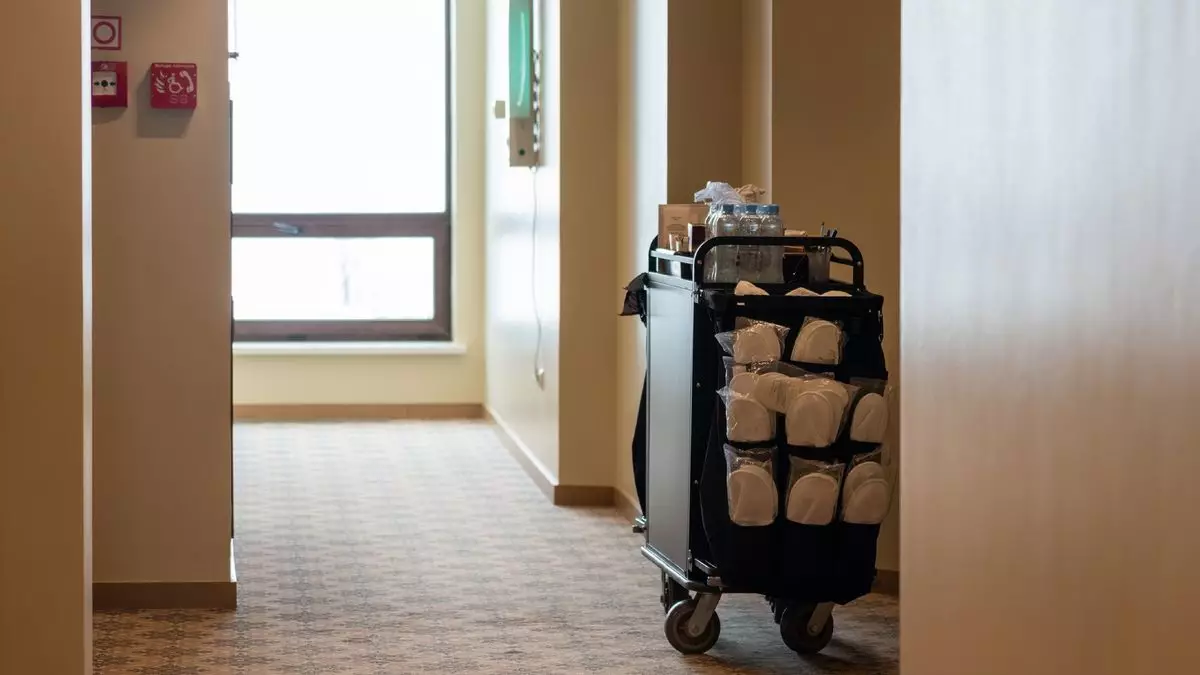The U.S. hospitality sector, comprising a multitude of hotels, restaurants, and other establishments, faces a troubling predicament amplified by an ongoing labor shortage. As immigration enforcement intensifies under governmental policies, particularly under the previous Trump administration, a potential crisis looms for industry stakeholders. The complex interplay between labor availability and changing immigration laws has generated a spectrum of opinions among industry experts. This article aims to unpack the intricacies of this issue, weighing its ramifications and future implications for the hospitality landscape.
A notable contributor to workforce challenges in the hospitality sector is the heavy reliance on undocumented workers. The Center for Migration Studies of New York revealed eye-opening statistics indicating that approximately 880,000 undocumented individuals are employed in the accommodation and food services sectors, making it the second largest employer of such workers in the U.S. after construction. States like New York have particularly high concentrations of undocumented labor, with thousands filling critical roles. These statistics raise questions about how possible mass deportations could strip the hospitality industry of its essential workforce.
However, there is a divide among experts about the extent of reliance on undocumented labor within the hotel operations specifically. Peter Ricci, a respected figure in hospitality education, vehemently rejects the notion that hotels hire undocumented workers knowingly. His assertion lies in the prevalence of employment verification systems like eVerify, suggesting that the claims of undocumented employment are exaggerated. This point of view emphasizes the complexity of the labor landscape and the necessity of distinguishing between various labor categories in hospitality-related jobs.
Matthew Lisiecki, a senior analyst at the CMS, offers a contrasting perspective, emphasizing that many undocumented workers may indeed possess temporary protected status or pending asylum claims yet remain vulnerable to shifts in immigration policy. This precarious legal status means that workforce retention could significantly fluctuate based on changing governmental policies. Lisiecki’s argument sheds light on the underlying complexities of immigration status and legal work eligibility, underscoring how fluid conditions can lead to heightened workforce instability.
Moreover, Lisiecki warns about the compounding effects on an already tight labor market. The hospitality industry, notorious for its labor inadequacies, may find itself in even more dire circumstances should mass deportations occur. His observations emphasize that replacing a sizable segment of the workforce is neither simple nor straightforward given current market conditions; a potential vacuum of available personnel could lead to disruptions in services, resulting in diminished consumer satisfaction.
Concerns Echoed at Industry Forums
The urgency surrounding the potential implications of immigration policy has been echoed within major industry events, such as the Americas Lodging Investment Summit (ALIS) Law Conference held in Los Angeles. Here, industry leaders openly expressed their concerns regarding mass deportations and the subsequent staffing shortages that could arise. Observations from professionals like Yariv Ben-Ari highlight how these impending challenges are front-of-mind, particularly with regard to core services, including housekeeping and food and beverage operations.
Ben-Ari pointed out the potential ripple effects of insufficient staffing, reminiscent of service lapses experienced during the COVID-19 pandemic. If hotels cannot adequately staff essential services such as room service, consumers might face diminished quality in their experiences. This breakdown could dissuade returning customers, particularly if prior standards falter, leading to long-term ramifications for brand loyalty and economic stability within the sector.
As market forces shift and wages potentially increase in response to labor shortages, industry costs could climb—a burden likely to be passed on to consumers. Such a sequence raises critical questions about affordability and accessibility within the hospitality market, challenging both businesses and patrons alike.
Despite the looming threat of immigration policy shifts, several industry executives have expressed skepticism about the potential for mass deportation to significantly impact hotel staffing levels. IHG Hotels & Resorts CEO Elie Maalouf drew attention to how historical data reveals that elevated levels of illegal immigration have not necessarily translated to improved labor conditions or availability in previous years. This observation points to a complex relationship between immigration rates and labor market outcomes.
As the scale of possible workforce upheaval remains to be fully understood, many hoteliers are proactive in seeking solutions. Adaptation and foresight have become essential components for navigating the uncertain landscape posed by immigration laws and labor availability. The multifaceted challenges that emerge from this situation underscore the importance of collaboration, creative problem-solving, and an ongoing commitment to workforce stability within the U.S. hospitality industry.
The intersection of immigration policy and labor supply presents a precarious situation for the hospitality sector—a domain already vulnerable to staffing challenges. As stakeholders navigate this multifaceted landscape, the way forward will demand resilience, innovation, and a keen understanding of both market dynamics and regulatory frameworks.


Leave a Reply